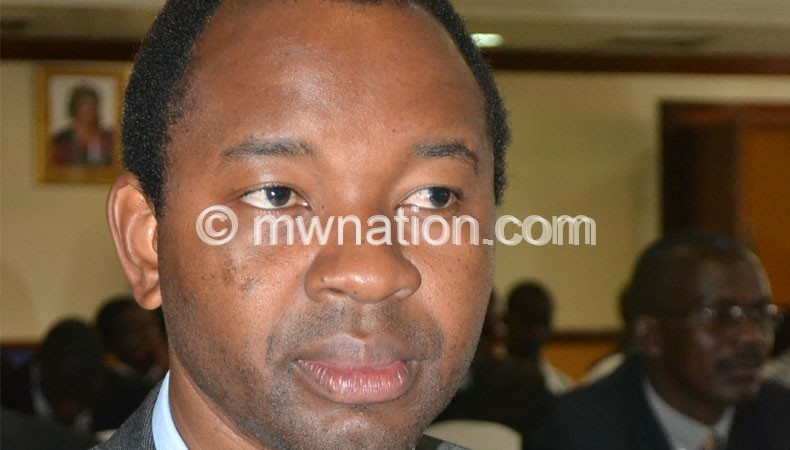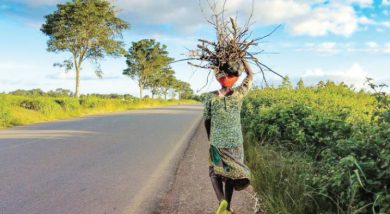Sorrows of an intersex’s mother
Boy or girl? Future’s mother quickly discovered that having a baby who does not conform to either sex is a draining test of character.
Fourteen years ago, the woman, from Traditional Authority (T/A) Kalonga in Salima, birthed a baby with a male organ sticking out above a female one.
“When baby Future was born, some grannies wanted the newborn dead,” she recalls. “To them, it was a curse. I was supposed to kill it and pretend that I had miscarried. How could I do that?”
But keeping the “strange baby” is no easy path.

For the strong-willed mother, it gets tougher as the baby grows.
“It’s not meant for the faint-hearted,” she says.
Since she left the traditional birth attendant’s mud hut, she has been hopping from one hospital to another to figure out the baby’s true sex.
She commends government for banning the backstreet birth attendants, who silently smother babies like Future.
But her lengthy search for medical doctors for expert view on whether the newborn was male or female took her to Salima District Hospital, Kamuzu Central Hospital in Lilongwe and Queen Elizabeth Central Hospital in Blantyre.
She narrated: “As the doctors could not distinguish the dominant organ, the baby grew up wearing dresses.
“When he was five, a doctor in Blantyre told us that the child in girls’ clothes was actually a boy. It was unbelievable. How could Future be a man when he spoke like a girl and was urinating like any other girl?”
The woman braves gossip, ridicule and exclusion to ensure her unique babies grows up like any other child.
She remains steadfast in defence of her child’s right to life, education and association although the Standard Six pupil keeps changing schools to evade dehumanising treatment from schoolmates.
But what keeps her going?
“Every baby is a gift from God. I accepted mine and I smile when Future smiles,” she says.
But the heartbreaks continue.
She explained: “At school, my child was using a latrine meant for boys until his peers discovered that he has breasts. When Future switched to the girls’ latrines, the girls felt uncomfortable too,” explains the mother.
But the intersex pupil was not welcome in the teachers’ latrines either. To relieve himself, he had to walk back home.
The mother became a laughing stock as many villagers thought the schoolchild was practising homosexuality which remains maligned and criminalised in the country.
Questions about Future’s sex abound and police in Salima detained seven abductors for stripping the schoolchild to ascertain his sex.
This year, the pupil had missed classes and end-of-year examination for two weeks due to rampant name-calling by schoolmates.
“It is painful that some people do not believe there are persons born with both organs. But here my child is: while doctors say he is a boy, he has breasts like a woman and I have visited many hospitals to ascertain if he is still a boy. I suspect he has a womb,” she explains.
Survivors of arranged baby killings, which usually wipe out intersex children countrywide, grow to become what Centre for Development of People (Cedep) spokesperson Rodney Chalera rightly terms “boys or girls in wrong bodies”.
They are usually subjected to babyhood surgeries to align their sexes with cultural norms that classify people as male or female.
Tragically, some discover that the sexual organ severed was actually the dominant one.
In his award-winning inquiry, our News Analyst Suzgo Chitete met a person who impregnated a girl after living as a woman for 48 years.
“The person did not know how to respond to the belated surprise,” he says.
The Salima woman fears Future might find it harder to marry.
She asks Malawians, especially religious and traditional leaders, to put themselves in the shoes of the misunderstood sexual minority and stop mistaking them for homosexuals.
She explains: “When we chose to spare Future’s life, we knew every baby has a right to life. Now what are we supposed to do? Should we throw him away? Why? He is our child and we are proud of this. We cry when he cries and smiles when he smiles.
No, he is our blood.
“Due to lack of information and empathy, some insensitive people call my son cursed as they associate him with gay or lesbian affairs. But he does not harbour feelings for same-sex partners. He was just born differently.”
But stigma and discrimination remain rampant.
Intersex Malawians are denied public services and goods—including passports—as government documents restrict citizens to two tick-boxes: male or female.
Lawyer Mandala Mambulasa urges government to embrace diversity by not only adding the ‘other’ tick-box, but also delaying the surgeries until a child is old enough to choose a dominant sex.
According to Chalera, the surgery only serves “a cosmetic purpose” and imprisons some men in a female body and vice-versa.
“It doesn’t make them male or female. It only allows parents and health workers to impose their preferred sex on these babies. Some people grow up with strange features and hormonal reactions,” he explains.
The number of intersex Malawians remains unknown.
As the debate over sexual minorities rages on, lamentations of Future’s mother offer food for thought.
She laments: “Raising Future has been a long struggle, but endless discrimination makes us wish he sought asylum abroad. Malawi is his only home, should he become a refugee because he was born differently?” n





